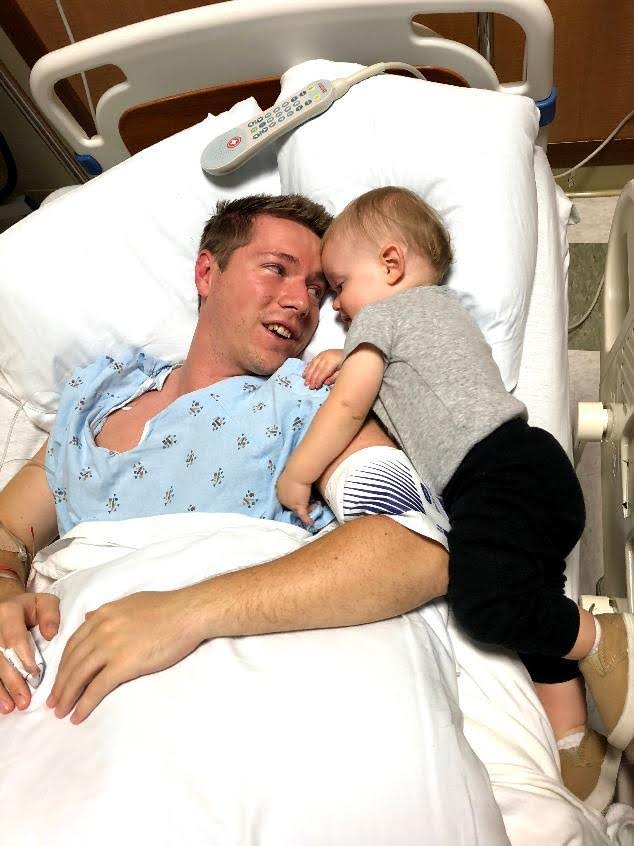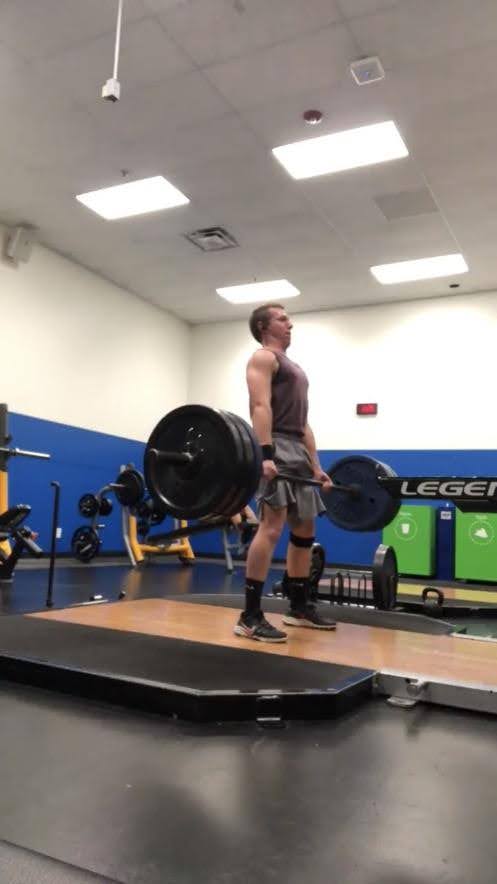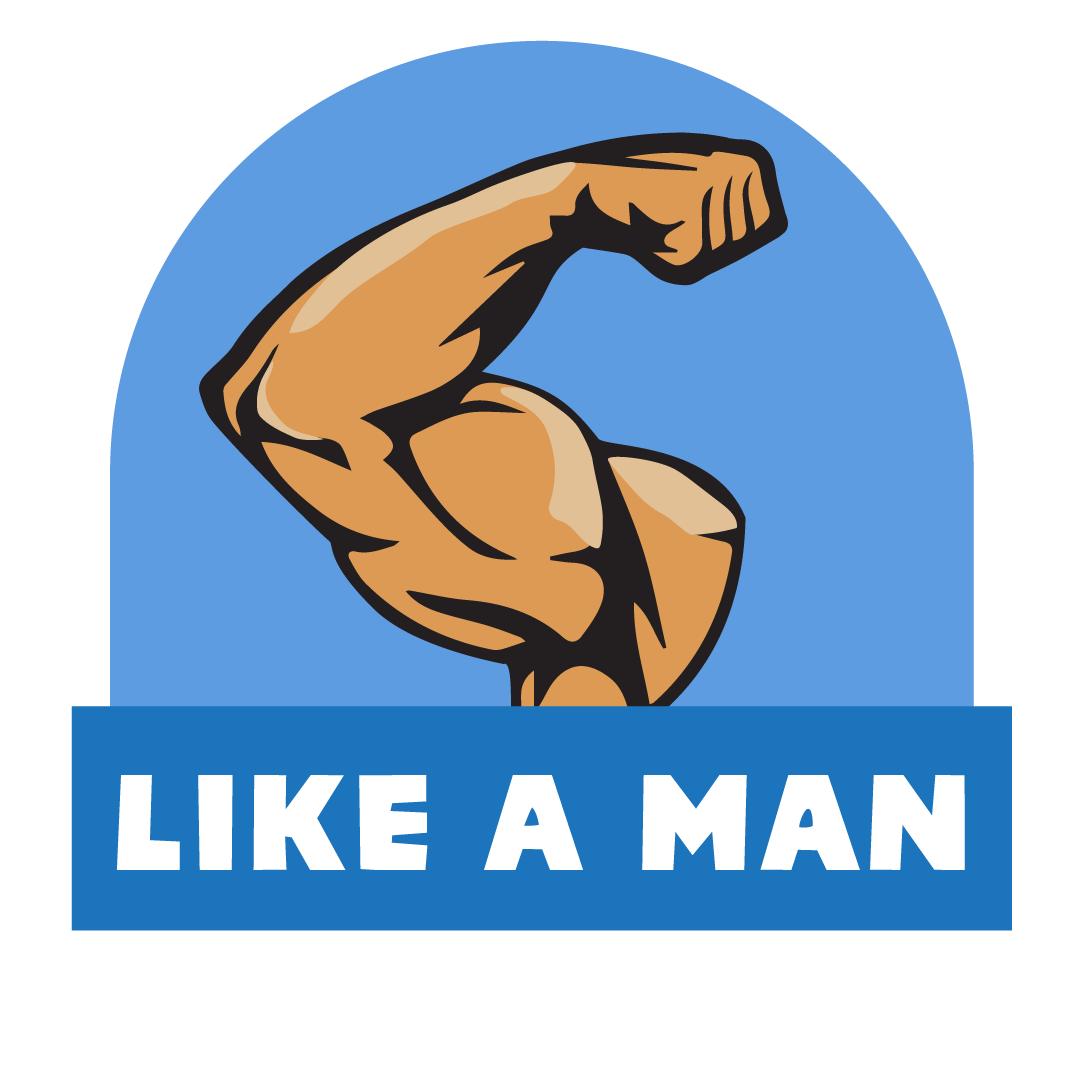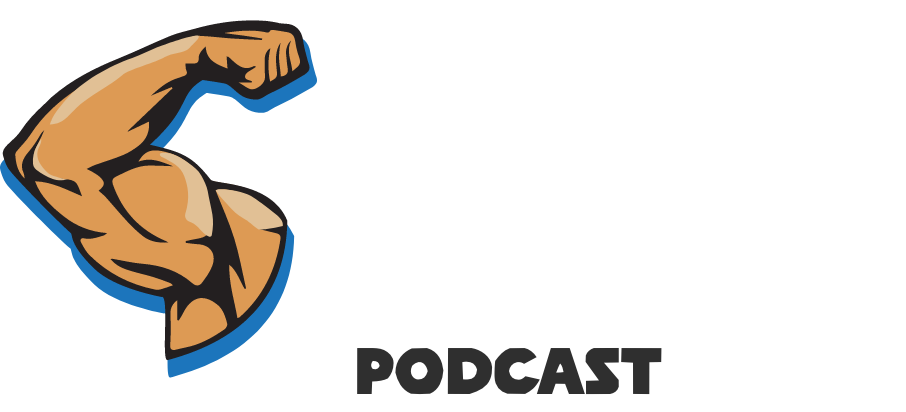I almost lost my life in October 2018.
I woke up one evening with severe stomach pains in my lower right abdomen. I assumed appendicitis and had my wife take me into the hospital to treat. There in the ER, however, I was diagnosed with much more than appendicitis, and was rushed off for immediate life-saving surgery.
I was diagnosed with a Cecal Volvulus, a condition where my intestines twist on themselves and cut off needed blood flow. The surgeon rushed in the room and told our family to prepare for emergency surgery, and I was put under less than an hour later. This left my wife and I wondering what might happen if I did not wake up or if my life would come to an end 3 weeks before my 26th birthday.
Fortunately, I did wake up the next morning, grateful to be alive, but not without pain and a long road to recovery. I found out later just how serious this was, learning this condition has a 40% fatality rate. I had lost my cecum, my appendix, and my entire right colon to the illness, a length of about 18 inches. I am here by just the flip of a coin and am grateful to my surgeons and God for a second chance at life.
After my surgery, many simple tasks became challenging, and I found myself unable to participate in the things I loved. It was difficult to move and perform any function with several incisions through my abdomen. I could no longer go to the gym, participate in activities, eat certain foods, or most heartbreakingly even hold my 1-year-old son because he was over 20 lbs.
As I recovered, I saw goodness in many people around me that pitched in to help. Family members and friends would pitch in with meals and visits to our family. My loving wife stepped up in a big way to take care of me as well as the house, medical bills, and our son, Leevi. As I returned to work as a Business Analyst, she would drive me in to the Walmart Home Office, where members of my team would meet me at the curb and help me carry my computer bag and help me to my desk.
There were many physical challenges as a result of the procedure, and recovery felt long as infections, kidney stones, follow up surgeries, and diet/activity changes were part of my life now. But as much as I expected a long physical recovery… I did not expect the impact on my mental health recovery journey to be even longer.
After the trauma associated with a serious medical event, I found that my brain had a difficult time discerning between what could be more life-threatening pain, or just normal surgery recovery aches and pains. This weighed on me for months until it started to spill over into other aspects of my life. I became anxious when other people would drive the car, I became a nervous flier on turbulent airplanes, I felt the need to see a doctor for every discomfort I felt to make sure I was alright. All this coupled with financial burden from medical bills proved to be a tough mix. These stressors were filling my cup, and I would experience panic attacks on a fairly regular basis. Basically, anything that felt out of my control or potentially life-threatening to me would be a trigger, and in my mind I would go right back to that ER bed awaiting surgery.
I also grew weary of significant weather events, which in Arkansas can be fairly frequent. One particular Saturday we had a few family events planned but there was a storm rolling through and my anxiety would not even allow me to leave the bed. That is when I realized that my mental health crisis was now affecting more than just me, but also my family and those I cared about. I decided it was time to do something about it; speak up that I was not ok, and needed help.
This was a tough realization for me. I had not been one that had struggled with mental health issues in the past and I found myself in unfamiliar territory. For a while I suffered in silence; I did not know how to talk about these new feelings I was experiencing. I grew up a generally happy kid, maybe believing I was immune to these struggles. But if there is anything this experience has taught me is that we are all susceptible to having mental health crises in our lives if the right events line up. I learned if it could happen to me, it really could happen to anyone of us.



In the months that followed I took several steps toward a mental health recovery. I took a class at my local church teaching on mental health and emotional resilience, I started speaking with a mental health professional offered through my company benefits, and attended many listening and info sessions to incorporate tactics like box breathing and better sleep into my life.
This could not have come at a better time, as coming out of my physical recovery we came directly into 2020 and the effects of COVID-19, where fear, isolation, political unrest, and sickness challenged all our mental health. On top of that, as gyms closed and activities stopped, I found it difficult to get active and return to a healthy workout routine and activities I enjoyed before my condition. Working out and fitness had always been a part of me as a Lacrosse player before surgery, and I felt like I was losing a piece of my identity as my body lost a considerable amount of stamina, muscle mass, and endurance through recovery.
Through time and implementation of the emotional resilience principles taught to me, I started to notice a difference. As I focused on meditation and breathing, I noticed my panic attacks were fewer and farther between. As I worked on my new diet and made healthy choices and learned what my body now needs, I noticed an increase in energy and more healing. As I focused on doing what activities I could and getting out more walking, jump roping and sometimes even running, I noticed strength starting to come back little by little as activity nurtured both my body and my mind.
It was my goal to establish a consistent and healthy routine to incorporate goodness back into my life. I now am back at the gym 4-5 times per week; even though my workout looks different, and the weight is lighter than it used to be, it feels good to move. I have set a better night routine to wake up ready for an early morning start. I have been prepping my weekly meals each Sunday to have a more nutritious diet of things that I can actually eat, which also saves me money not having to eat out each meal. I have been taking micro breaks in the day to get outside and walk my planned 1,000 steps and enjoy this beautiful spring weather and sunshine to recharge my day. I make time to disconnect from work and connect with my growing family, as my wife and I have welcomed two more children into our home since my surgery, a blessing of this God-given second chance at life.
For me, these lase changes represent the culmination of the effort and journey I have taken over the past 4 years. It is a time to now put into practice the things I have learned through my experience and an opportunity to build back a better version of me. Now as the pandemic is subsiding and we return to normal activity, I am also turning a new chapter and getting back into my activities as I see sunnier days ahead. I am grateful for emotional resilience practices and other mental health resources that have given me new perspective, hope, and the chance to get back on my feet to be there for my family and build a better me.

